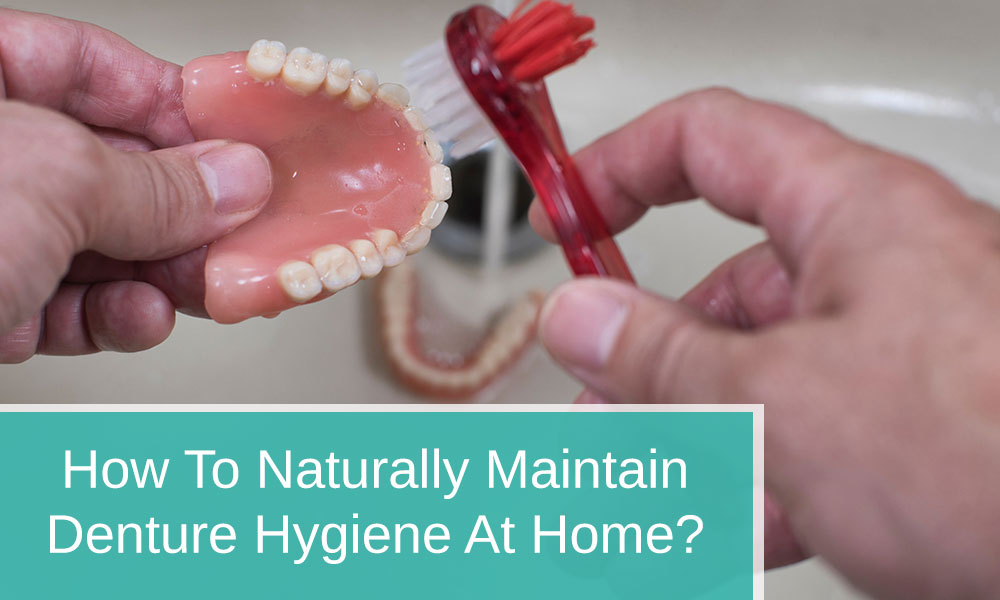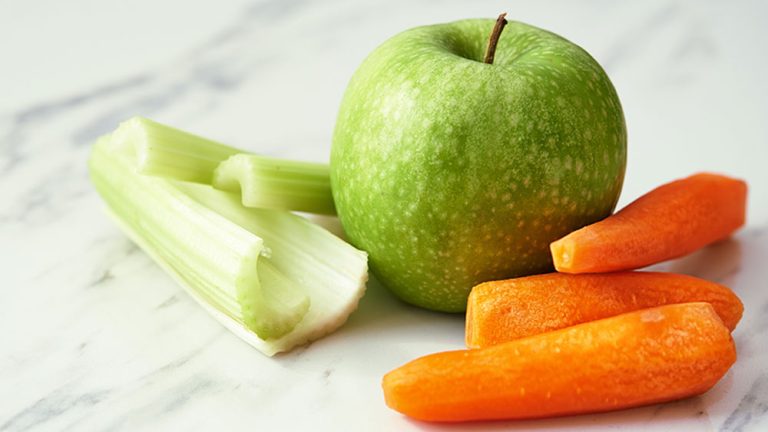
How to naturally maintain denture hygiene at home?
Maintaining denture hygiene is fundamental for oral health, and an increasing number of individuals are turning to natural methods for a holistic approach. We’ll explore the significance of natural denture hygiene and provide actionable tips for maintaining optimal denture health at home.
The Significance of Natural Denture Hygiene
While dentures are artificial, their care should be as natural as possible. Chemical cleaners can pose risks such as damage to denture materials and potential health concerns. Natural denture hygiene not only avoids these issues but also promotes overall well-being. Harsh chemicals can lead to wear and tear on dentures, causing discomfort and reducing their lifespan. Natural ingredients, on the other hand, provide a gentler yet effective approach, preserving the integrity of dentures while supporting oral health.
Understanding Dentures and Their Care
Dentures come in various types, including full, partial, acrylic, porcelain, and metal. Each type requires specific care to ensure longevity and optimal performance. Regular cleaning, proper storage, and routine check-ups are vital components of denture care. Understanding the properties of denture materials helps in selecting suitable natural cleaning agents. Whether you have acrylic or porcelain dentures, a tailored care routine contributes to their durability and your overall oral health.
Daily Habits for Optimal Denture Maintenance
Establishing a daily routine for denture care is essential for maintaining optimal hygiene. Here are some daily habits to incorporate into your routine:
- Morning Rinse: Start your day by rinsing your dentures thoroughly to remove any debris accumulated overnight.
- After-Meal Cleaning: After each meal, remove and rinse your dentures to prevent the buildup of food particles.
- Regular Brushing: Brush your dentures daily using a soft-bristle brush to remove plaque and stains.
- Nighttime Soak: Soak your dentures overnight in a denture cleaning solution or natural remedy to keep them fresh.
Consistency in these habits is key to preventing issues such as plaque buildup, stains, and unpleasant odors.
Natural Cleaning Agents for Dentures
Several natural ingredients can effectively clean dentures without causing damage. Incorporate the following natural cleaning agents into your routine:
Baking Soda
Baking soda, or sodium bicarbonate, is a versatile and cost-effective natural cleaner. Its mild abrasive properties make it ideal for removing stains and plaque from dentures without causing damage. Baking soda also helps neutralize odors, leaving dentures fresh and clean. To use, create a paste by mixing baking soda with water and gently brush the dentures.
White Vinegar
White vinegar, or acetic acid, is renowned for its natural antibacterial and antifungal properties. It helps eliminate microbial growth on dentures and break down stains. Create a white vinegar soak by combining equal parts of white vinegar and water, allowing the dentures to soak for 15-20 minutes.
Lemon Juice
Lemon juice, rich in citric acid, serves as a natural freshener and stain remover. Its acidity helps break down stains and brighten dentures. Dilute lemon juice with water to reduce acidity, soak the dentures for no more than 15 minutes, and rinse thoroughly.
Incorporate these natural cleaning agents into your routine, experimenting to find the combination that works best for your dentures.
Incorporating Herbal Solutions in Denture Care
Herbal solutions can enhance denture care with their natural properties. Consider the following herbal remedies:
Chamomile
Chamomile possesses anti-inflammatory and antimicrobial properties. Brew a chamomile tea, let it cool, and use it as a mouthwash or to soak dentures. Chamomile can soothe gum irritation and contribute to a healthier oral environment.
Aloe Vera
Aloe vera is known for its soothing and healing properties. Use aloe vera gel as a gentle option for cleaning dentures. It not only cleans but also provides a cooling sensation, making it suitable for individuals with sensitive gums.
Experiment with herbal solutions, ensuring compatibility with your denture materials and personal preferences.
Dietary Tips for Better Denture Health
Diet plays a important role in maintaining overall oral health, including denture care. Here are some dietary tips for better denture health:
- Stay Hydrated: Proper hydration is essential to prevent dry mouth, which can lead to discomfort and irritation. Drink an adequate amount of water throughout the day.
- Calcium-Rich Foods: Incorporate calcium-rich foods like dairy products, leafy greens, and fortified cereals to support bone health and the underlying structures that support dentures.
- Avoid Sticky and Hard Foods: Minimize the consumption of sticky and hard foods to prevent damage to dentures. Opt for softer alternatives that are easier on your dentures.
A well-balanced and nutritious diet contributes to overall health and positively impacts your denture-wearing experience.
Hydration and Oral Health
Hydration is a critical factor in maintaining oral health, especially for denture wearers. Dry mouth is a common issue that can lead to discomfort and irritation. To ensure optimal hydration and oral health:
- Drink Water Regularly: Sip water throughout the day to keep your mouth moist and prevent dry mouth.
- Avoid Excessive Caffeine and Alcohol: Caffeine and alcohol can contribute to dehydration. Limit their consumption and balance with water intake.
- Use Moisturizing Mouthwash: Choose a mouthwash that helps moisturize your mouth. Look for products specifically designed for dry mouth relief.
Prioritizing hydration supports overall oral health and enhances the comfort of wearing dentures.
Tips for Preventing Denture Odor and Stains Naturally
In addition to regular cleaning, consider the following tips to prevent denture odor and stains naturally:
- Practice Good Oral Hygiene: Brush your gums, tongue, and the roof of your mouth daily to remove bacteria and prevent odor.
- Avoid Smoking: Smoking can contribute to denture stains and unpleasant odors. Quitting smoking not only benefits your oral health but also your overall well-being.
- Regular Dental Check-ups: Schedule regular check-ups with your dentist to ensure the overall health of your oral tissues and address any denture-related concerns.
Consistent oral hygiene practices and preventive measures contribute to a fresh and clean denture-wearing experience.
Dos and Don’ts of Natural Denture Hygiene
To ensure effective and safe natural denture hygiene, consider the following dos and don’ts:
Dos:
- Consistent Cleaning Routine:
- Establish and adhere to a regular cleaning routine for your dentures. Consistency is key to preventing issues.
- Gentle, Natural Ingredients:
- Choose natural cleaning agents that are gentle on denture materials. Baking soda, white vinegar, and herbal solutions are excellent choices.
- Allow Proper Soaking Time:
- If a natural remedy involves soaking, adhere to the recommended duration for effective cleaning.
- Home Remedies for Denture Hygiene is also encouraged
- Maintaining denture hygiene can also involve incorporating home remedies, such as natural cleaning agents like baking soda, white vinegar, and herbal solutions, into the daily care routine for effective and safe results.
Don’ts:
- Avoid Harsh Substances:
- Refrain from using natural ingredients that may be overly abrasive, as this could damage denture materials.
- Neglect Regular Cleaning Habits:
- Even with natural remedies, maintain a consistent schedule for cleaning to ensure ongoing denture hygiene.
Adhering to these dos and don’ts ensures the effectiveness of natural denture cleaning while preserving the integrity of dentures.
Tips for Overcoming Common Denture Challenges
Denture wearers may face common challenges such as discomfort, slipping, and speech issues. Here are some practical tips for overcoming these challenges naturally:
Discomfort:
- Ensure Proper Fit: Visit your dentist regularly to ensure your dentures fit properly. Ill-fitting dentures can cause discomfort and irritation.
- Use Denture Adhesives: Consider using a minimal amount of denture adhesive for added stability and comfort.
Slipping:
- Chew Slowly and Evenly: Distribute chewing evenly to prevent dentures from slipping during meals.
- Consider Implant-Supported Dentures: If slipping is a persistent issue, consult your dentist about implant-supported dentures for a more secure fit.
Speech Issues:
- Practice Speaking: Engage in regular speech exercises to adapt to speaking with dentures.
- Read Aloud: Reading aloud can help improve pronunciation and adjust to speaking with dentures.
By addressing these challenges proactively, you can enhance your comfort and confidence while wearing dentures naturally.
Frequently Asked Questions (FAQs) About Natural Denture Hygiene
Can I use these natural ingredients daily?
Yes, natural ingredients can be used daily for denture cleaning. However, it’s essential to monitor the condition of your dentures and adjust the frequency based on your individual needs.
Are there any side effects of natural denture cleaning?
When used as directed, natural denture cleaning typically has minimal side effects. However, individuals with specific allergies or sensitivities should exercise caution and consult with a healthcare professional if concerns arise.
Can I combine multiple natural ingredients?
While some natural ingredients can be combined for enhanced effectiveness, it’s vital to ensure compatibility. Avoid mixing ingredients with contrasting chemical properties, as this may diminish their individual benefits.
How long should I soak my dentures in these natural solutions?
The recommended soaking duration varies depending on the natural solution used. Generally, 15-20 minutes is sufficient for effective cleaning. However, always follow specific guidelines for each ingredient.
How Long do you Have to go to School to be a Dentist?
To become a dentist, one needs to undergo approximately eight years of education, consisting of a four-year undergraduate degree and four years of dental school.
Important Notes
Embracing the power of natural ingredients for denture cleaning is not just a trend; it’s a sustainable and effective approach to oral care. From the gentle scrubbing action of baking soda to the antibacterial prowess of white vinegar and the freshness of lemon juice, natural ingredients offer a diverse toolkit for denture maintenance. By understanding the properties and applications of these ingredients, individuals can unlock the secrets to clean dentures effectively and safely, promoting a healthier smile and improved overall well-being.



